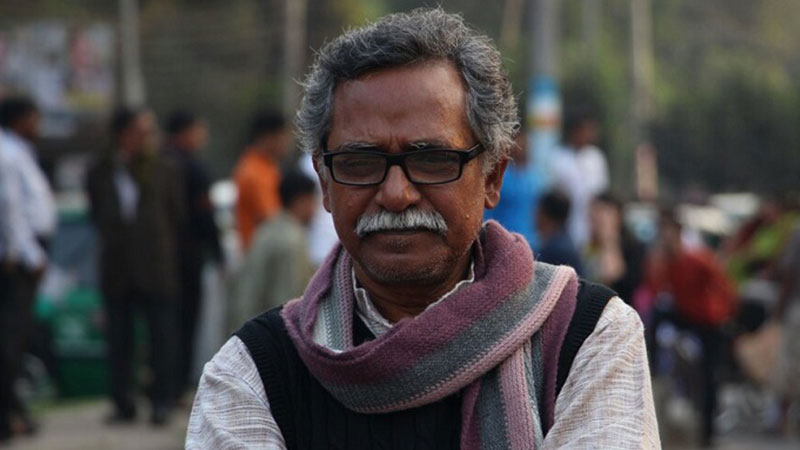Economist
and Democratic Rights Committee member Professor Anu Muhammad highlighted the
poor conditions of workers in the country and their contribution to the economy
and state. He shared his views yesterday (Friday, October 4) afternoon at a
seminar titled ‘Student-People Uprising: Democratic State and Workers’ Share,’
held at the Sirajul Islam Lecture Hall of Dhaka University, organized by ‘Shomajpath.’
He
shared that workers live far below the poverty line due to how their wages
have been determined. To secure their rights, workers must increase their
representation in various areas as they are the true majority. Workers consist
of diverse religions, genders, and opinions. The inclusive ideals being
discussed recently are more evident within the worker community.
Recalling
the workers who participated in the movement, Professor Muhammad said, “Over
100 people who died in the movement were workers. They spontaneously joined the
protests to end discrimination. Most students who participated in the
movement also came from worker families. However, after the fall of the fascist
government, we witnessed the death of a garment worker in Ashulia under the new
government in Bangladesh. Workers’ rights must be secured, and their
representation should be increased.”
Moderated
by Ali Naim, the seminar featured speakers including Dr. Shahzad Firoz, a
professor at North South University, writer and activist Tuhin Khan, labor
movement activist Satyajit Biswas, and representatives from rickshaw workers,
jute mill workers, and garment workers.
In
his speech, Tuhin Khan paid tribute to Kawsar Ahmed Khan, the worker killed in
Ashulia, stating, “What kind of university do we want! What kind of election
commission do we want! Discussions are being held on these issues. However, there is
little focus on what kind of factories we want and what workers’ rights should
look like. No visible steps have been taken by the government either. Workers
participated in the movement with the hope of ending discrimination. While the
term ‘discrimination-free’ is used everywhere, the situation for workers
remains different. Workers were deprived of rights under the fascist regime,
and the same picture persists today. The police who are deployed to attack
workers in industrial areas receive rations, but workers themselves receive
nothing of the sort.”
Recalling
the workers' involvement in the movement and their support for the students,
Sujay Shuvo, a coordinator of the Student-People Uprising from Barisal
district, said, “On July 18, students from Barisal University were attacked,
forcing them to leave campus. At that time, the workers stood by our side and
supported us in various ways. However, we have failed to stand by them after
the uprising. With their income, they struggle even to secure food, let alone
fulfill their basic rights.”
Garment
worker representative Muhammad Uday remarked, “Every day, the prices of
essential goods in the market rise, but workers’ wages remain the same. Workers
are called the driving force of the economy, but their rights are uncertain.
Workers need rice, lentils, and food to survive. With their wages, they struggle
to buy even these basics. At the end of the month, they have to take on debt to
pay rent. In a democratic Bangladesh, the basic rights of workers must be
ensured so they can live.”
Representing
rickshaw pullers, Obaidul Islam said, “For generations, we have been deprived
of our rights. We have never received any of the basic rights we deserve.”

